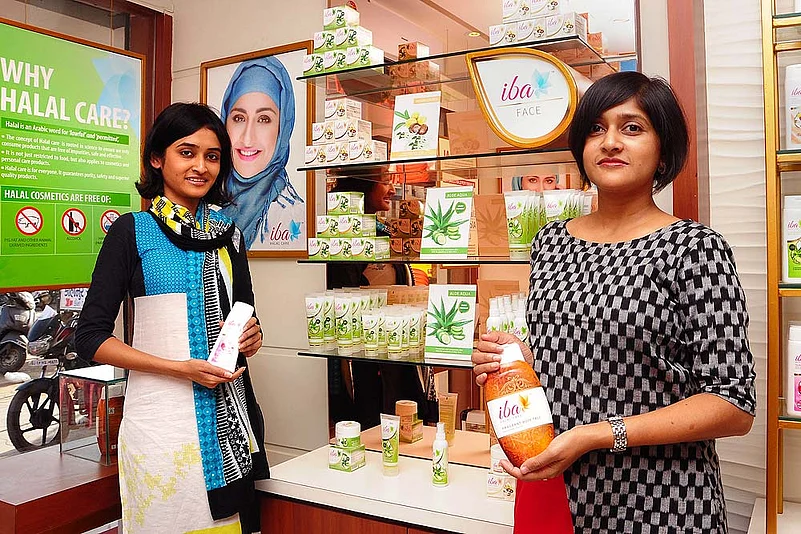Jain sisters offering halal products? Ones free of pig fat, gelatin, keratin and other animal-derived ingredients, alcohol and harsh chemicals such as sulphates and parabens? Well, the word halal in a broader term means ‘permissible’ and it’s that what inspired Mauli Teli, 32, and her sister Grishma, 28, to launch their first-of-its kind beauty range in 2014, calling in Iba Halal Care.
Before they knew it, the cosmetics had become all the rage in Ahmedabad. “Yes, the lipsticks aren’t long-lasting, but that’s because it is shea butter you are using, not lead,” says Farin Jafri, a make-up artiste from Ahmedabad. Word has reached the metros too and the finicky organic-only types are fast warming up to the idea.
After organic and vegan food, the wave seems to have reached the beauty industry as well. Celebs like Miranda Kerr touting all-natural makeup and skin care has also helped. Halal cosmetics are composed mostly of natural ingredients, like rose petals, fruits of heaven (a blend of pomegranate, dates, fig and grape extract), kalonji oil, olive oil, multani mitti, vegetable butters and vitamins. The Arabian Oudh attars seem to have come straight out of your kitchen cabinets. The range of toiletries like multani mitti soap, face wash and foot massage cream also have pink hijab-clad women on the labels tendering advice on how to get rid of those nagging blemishes.
Needless to say, Iba’s products are a heaven-sent for the modern Indian Muslim woman. For instance, Tazeen, 26, a former air hostess, doesn’t use nail paint from any of the commercially produced top brands in case it interferes with her namaz rituals. Nowadays she swears by Iba’s lipsticks, creams and attars, claiming they are chemical-free and can be used in the long-run. She has even recommended them to her sisters and uncles.
Halal cosmetics, originally aimed at Muslim women, are already popular in the US and UK, with youngsters swearing by Amara Halal Cosmetics and Crescent soaps. The concept is yet to take full flight in India, but Iba Halal Care has already joined the league of Kelloggs, Haldiram’s and Taj Caterers that are all halal-certified. According to industry-watchers, the market for such products, including food, pharmaceuticals, cosmetics and services, is expected to grow from $1.62 trillion in 2012 to $2.47 trillion in 2018.
So, why halal over other herbal or even ayurvedic products? Is it just a branding gimmick to attract Muslim girls? Mauli, an engineer by profession, explains it thus: “Being entrepreneurs, my sister and I wanted to launch our own brand. The Indian market is crowded with products and dominated by MNC brands. So our brand would need to stand for something unique, address an unmet need. On researching and meeting consumers and thought leaders across India, we found a strong relevance of halal in cosmetics.” And yes, they are different from the ayurvedic ones because they are vegan, using “no milk, no wax, no honey”.
At cosmetic shops in Ahmedabad as well as on online stores, the clientele is mixed, but the products are a big hit among women professionals. “Many who visit our store or website for the first time have a limited understanding of halal, but once they understand the philosophy and come to know that our products are vegan and devoid of harsh chemicals, they show a keen interest in trying out our products,” says Grishma. But production costs are high and with the market for such products still comparatively niche, the sisters believe it’ll take a while before India truly gets ‘hooked’ to halal cosmetics. With grey juice from charcoal being the latest addition to the beauty range for glowing skin, the market for organic, natural and halal cosmetics is headed in a definitive green direction.


























